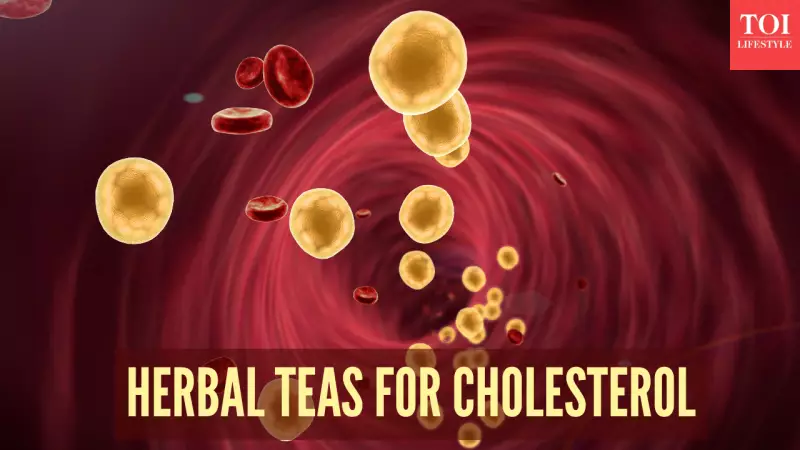
In the quest for better heart health, nature offers powerful solutions that have been trusted for centuries. Modern science is now validating what traditional Indian medicine has long known—certain herbal teas can significantly impact cholesterol levels and cardiovascular wellness.
1. Hibiscus Tea: The Vibrant Cholesterol Fighter
This ruby-red infusion isn't just visually appealing—it's a cholesterol-lowering powerhouse. Rich in antioxidants called flavonoids, hibiscus tea actively works to reduce LDL (bad cholesterol) while increasing HDL (good cholesterol). Studies show that regular consumption can lead to measurable improvements in lipid profiles, making it a delicious defense against heart disease.
2. Green Tea: The Ancient Elixir for Modern Hearts
Green tea's catechins, particularly EGCG, are celebrated for their ability to block cholesterol absorption in the intestines. This mechanism helps prevent plaque buildup in arteries, reducing the risk of atherosclerosis. The moderate caffeine content also provides a gentle energy boost without the jitters associated with coffee.
3. Ginger Tea: The Warming Circulation Booster
Beyond its digestive benefits, ginger contains gingerols that help reduce cholesterol production in the liver. Its anti-inflammatory properties also combat the chronic inflammation that contributes to heart disease. A warm cup of ginger tea can stimulate blood flow while managing lipid levels.
4. Cinnamon Tea: Sweet Protection for Your Arteries
Cinnamon does more than satisfy sweet cravings—it contains cinnamaldehyde that helps regulate cholesterol metabolism. This fragrant spice has been shown to lower total cholesterol, LDL, and triglycerides while maintaining HDL levels. Its natural sweetness means you can skip the sugar, making it doubly beneficial for heart health.
5. Turmeric Tea: Golden Healing for Cardiovascular System
Curcumin, the active compound in turmeric, is a potent anti-inflammatory that protects blood vessels from damage. By reducing inflammation and oxidative stress, turmeric tea helps prevent the cholesterol oxidation that makes LDL particularly dangerous. Adding black pepper enhances curcumin absorption, maximizing its benefits.
Brewing Your Way to Better Heart Health
Incorporating these teas into your daily routine is simple and rewarding. Most can be brewed using fresh or dried ingredients steeped in hot water for 5-10 minutes. For optimal results, consume 2-3 cups daily alongside a balanced diet and regular exercise.
Remember: While these herbal teas show significant promise in managing cholesterol, they work best as part of a comprehensive heart health strategy. Always consult with your healthcare provider before making significant changes to your health regimen, especially if you're on cholesterol medication.






